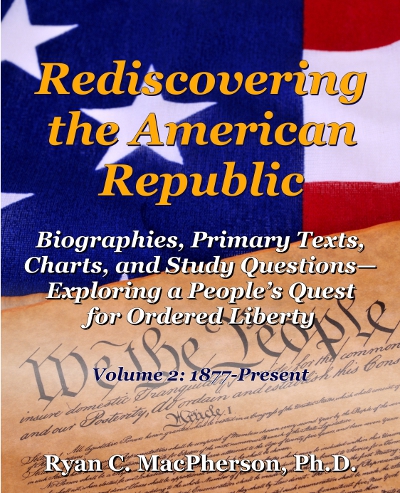Eternal Treasures: Teaching Your Child at Home entered my radar screen just a few weeks ago, when I noticed it was “recommended” for me on Amazon. “They” must know my tastes pretty well! I was blessed to be able to purchase it on discount at Wittenberg Academy’s recent Vocatio First Annual Retreat in Okoboji, Iowa. I devoured it in the past three days (which is pretty fast for a homeschooling mom of five small children who cooks everything from scratch)! Here are some highlights and critiques that I’d like to share with you.
Highlights
This book has many wonderful features, including: its emphasis on Classical Education, a focus on the Lutheran Worldview, the vision of the Doctrine of Vocation, the inclusion of a fresh new author, and an appeal to a broad audience.
Emphasis on Classical Education
Highest praise goes to the authors (well, really to God, which is where I think the authors would want the credit given anyway!) for presenting a specifically Lutheran worldview regarding classical education. There’s no apology—except for “apology” used in the classical “defense” setting—for the beautiful and challenging work set before parents to raise up their children in the nurture and admonition of the Lord, through the centuries of wisdom and beauty of Western tradition. “A child’s mind will face starvation unless it is fed noble ideas. His ability to serve others will falter without strong skills” (p. 12).
Worldview
The authors of Eternal Treasures rightly divide Law and Gospel, with Gospel always predominating, shining especially brightly in the vignettes. Here’s a wonderful selection from Cheryl Swope (p. 232):
As Christian parents, we embrace an education that teaches for this life and for the life that is to come. We strengthen our children’s minds through disciplined studies. We give them essential skills and tools for learning. We also nurture their faith. We love and forgive together, as we bring our children to their Savior in Holy Baptism, teach them Bible stories and the catechism, instruct them in Christian doctrine, immerse them in hymns and prayers, and pray for them all their lives. We receive with them daily lessons in humility and dependence upon the One who made us, the One who redeemed us. ...
Focus on the Doctrine of Vocation
Both authors and many of the contributing writers have a firm grasp on the Doctrine of Vocation. One of the sections begins with a quotation by Daniel Preus, “[T]he office of parent becomes the foundation for every other station of life. Society flows from the family, as do the good works that God has called us to do" (p. 213).
There is also a short piece focusing on special needs, and the unique vocation of parenting a child with special needs. Erik Rottman answers how a parent can respond when a child wonders why he or she has special needs (pp. 59–61):
Because our God is gracious. Because He intends for you to bless many people in unimaginable ways, as you already have. Because Jesus gives every Christian a cross and this one is yours. Because Jesus wants you to live on His strength instead of your own. ... Everyday life is an unavoidable and graphic preaching of the Law for our special-needs children ... [but] Jesus does not need us to overcome our limitations in order to believe.
New Author
Although previously known through blogging, new author Rachel Whiting shines in Eternal Treasures, with lots of great quotations, including (p. 14):
As we discipline our children, we learn with them, and we grow with them. We forgive them, and we ask them to forgive us. We find strong teachers for them when we cannot teach them ourselves. We give thanks for the faithful preaching and teaching from our pastors and for the unity in the body of Christ, His Church. As God graciously works in and through us, we persevere.
While I really appreciate Cheryl Swope’s and the other writer’s contributions, Whiting’s encouraging words to parents are especially lovely, well thought-out, and dripping of Scripture.
Appeal to a Broad Audience
This book appeals to a broad audience beyond homeschooling parents, including pastors, parochial school teachers, and public school parents who desire to encourage their children in the faith. It was refreshing to read the essays and lists in this book and be able to nod and agree, as compared with so many other “Christian” guides that require the Lutheran reader to sift the wheat from the chaff. I believe any Lutheran parent can gain wisdom and grow as an individual through the variety of observations in this book. There are many insights into how various groups can work together to further the Lutheran Classical education of all children in the Church Militant.
Opinions of Personal Taste
Although none of the following issues are a deal-breaker, I found myself confused occasionally while perusing the pages.
Title Precision
The title of this book is lovely and aesthetic, but it unnecessarily narrows the potential audience. The agenda of the book is to pass on the benefits of a Classical Lutheran education to the next generation. However, the title doesn’t contain the word ’classical’ or ’Lutheran’, even if it is published by a Lutheran church body in conjunction with a consortium for classical education. The title gives the impression that it is specifically for homeschooling families, but after reading the book, I believe any Christian parent or educator stands to benefit from it. (There is a sermon given by a pastor of a church regarding the history of classical education in schools. One particular essay brainstorms ideas for incorporating the church year in the home—useful for any parent, not just homeschoolers.) How about Eternal Treasures: A Classically Lutheran Education for the Next Generation Perhaps the publishers thought that making the title too specific would intimidate a broader audience? I personally think it would increase readership beyond homeschool families, to Lutheran families in general, and classically-minded educators specifically.
Audience and Organization
As I read through the book, I kept wondering if this book was written for me. I’d read a bit, page around, and then come back to where I was. I’d find a story or essay that really appealed to me, so I kept reading, not wanting to miss a single lovely part. But, my mind kept turning over, “Who is the audience for this book?”
I’m a Lutheran classically-minded mom of five children with six years of homeschooling experience. There was a lot I could take away from this book: reminders of law and gospel in parenting, God’s blessing in my vocation as a mother, encouragement and ideas for praying in the home. But I didn’t need to be a classical homeschooling mom to appreciate any of that.
There were also segments of the book that, while very interesting and engaging, were not germaine to me. The first three chapters of the book was an apologetic for why a family might choose to homeschool in general, and to pursue a classical education in particular. These chapters would be especially useful for a family that might be sitting on a fence about choosing to homeschool, but won’t necessarily pertain to the needs of a current (and convicted) homeschooling family.
Chapter 5 is entitled “Our Heritage: What is Christian Education?" This may have been a wonderful place to start the book, explaining the historical context for Lutheran education, and classical education in particular, including definitions and examples. A family freshly introduced to the concept of classical education may want to start in the middle of the book, and then go back to the beginning.
The book contains a wide variety of styles, authors, and passages—sermons, essays, reprinted blog-posts, poems, quotations, hymn verses, Scriptures passages, lists, narratives, introductions, etc. This diversity could be appealing to some, but I felt a little distracted by the lack of consistency. What’s next? How long is this section? Wait—who wrote this part? That being said, there was so much rich and practical theology that I just couldn’t put it down and was willing to put up with the assortment, especially because each section was labeled consisely in bold.
Self-Promotion
At times, Eternal Treasures felt as if it was a cross-reference guide to other books and articles written by its authors and endorsers. Honestly, that’s really okay with me, because I value those publications! But it might be nice for readers to be aware of this before purchasing the book.
While it’s to be expected that a publication by the Lutheran Church Missouri Synod would want to promote books by its synod publisher, nearly all of the religious resources listed were from CPH. I get it. Really, I do. It’s a book about Lutheran education, and so, obviously preserving God’s Word in its truth and purity is a high priority! But, by limiting resources almost completely to Concordia Publishing House, the book misses out on some quality Lutheran gems popular in conservative circles, such as:
- devotions in Book of Family Prayer
- free Sunday School Curriculum by the CLC
- reflections and articles by The Hausvater Project (hey—what was that about self-promotion?)
- coloring books and music by According to Your Word
- memory work through On My Heart
- the People’s Bible commentaries
- and so many great Lutheran sources!
Perhaps the authors are not aware of these resources, or perhaps they just ran out of room and needed to draw the line somewhere. Perhaps they felt recommending a wider variety of resources was beyond the scope of this particular book. Perhaps they are hoping to point readers to another, more detailed publication (also recommended in Eternal Treasures): Curriculum Resource Guide for Classical Lutheran Education (co-written by one of the authors).
Speaking of self-promotion, let me take a moment and do some of that! IYH has had a book about homeschooling in the works for years, which we are finally planning to produce. It’s a book of questions about homeschooling, answered by a variety of Christian families. We hope and pray it will both offer insight into homeschooling for outsiders, and offer ideas and encouragement for homeschooling families. Check out our book-in-progress to see if it’s a project you’d like to take part in. It will have a similar structure to Mothering Many, as if you were in a room with several homeschooling families, swapping stories and ideas (without the lovely little children chattering while you discuss).
Conclusion
If you are looking for a very accessible overview of classical education (containing an emphasis on homeschooling), with a specifically Lutheran worldview, and a quality law/gospel emphasis in parenting, Eternal Treasures is a great book to study! It would also be a wonderful gift to have on hand for anyone you know who wants to understand your personal reasons for home education, or for any family who is considering the implications of the choice to homeschool. It’s a warm and encouraging read for any homeschooling parent looking for direction or any parent needing encouragement in their vocation. All in all, I highly recommend it!


